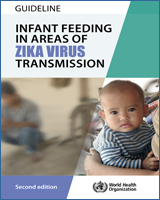| Factors relating to the individual |
|---|
| Lactating women lack knowledge about risk of transmission of HTLV-1 and influenza vaccination from mother-to-child by breastfeeding | (18–20) | Low | Three studies (French Guiana, Japan and Sierra Leone). There are moderate concerns about coherence and serious concerns about methodological limitations, adequacy and relevance (one study was HTLV-1 and one on influenza vaccination) |
| New mothers were strongly influenced by the information and advice on mother-to-child transmission provided by specialist infectious diseases health-care staff | (19,21,22) | Moderate | Three studies (two Brazil and one French Guiana). Moderate concerns about methodological limitations, coherence, adequacy and relevance (all studies only consider HTLV-1) |
| New mothers feel empowered by this information and advice |
| New mothers report that when information and advice is given by health staff with specialist expertise, this gives them confidence in their choices | (21,22) | Moderate | Two studies (both Brazil). Moderate concerns about methodological limitations, coherence, adequacy and relevance (all studies only consider HTLV-1) |
| New mothers maintain strong expectations about the need to breastfeed if they are to form bonds with their baby | (21–24) | Moderate | Four studies (three Brazil and one Guinea). Minor concerns over coherence, and moderate concerns about methodological limitations, relevance and adequacy |
| Mothers experience stigma as a consequence of not being able to breastfeed | (18,19,21,22) | Moderate | Four studies (two Brazil, one French Guiana and one Sierra Leone). There are moderate concerns about methodological limitations, coherence, adequacy and relevance (all studies only consider HTLV-1) |
| Mothers’ health can affect their ability to breastfeed | (18,23,25) | Low | Three studies (Brazil, Guinea and Sierra Leone). There are moderate concerns about methodological limitations and coherence and serious concerns about adequacy and relevance |
| Community-related factors |
|---|
| Health decision-makers and managers reported a prevalent view in the community that failure to breastfeed indicated contagion or infection | (21,22) | Low | Two studies (both Brazil). Minor concerns over coherence, moderate concerns about methodological limitations but serious concerns about adequacy and relevance (such as HTLV-1 and Brazil only) |
| According to health decision-makers and managers, those in the community believed that alternatives to breastfeeding were not trustworthy | (24) | Low | One study (Guinea and Sierra Leone) of a single condition (Ebola). Minor concerns about methodological limitations and coherence but serious concerns about adequacy and relevance |
| Health system factors |
|---|
| Women and new mothers report a lack of knowledge among non-infectious diseases health staff about certain conditions with a risk of mother-to-child transmission by breastfeeding (such as HTLV-1) | (18,19,21,22,24) | Moderate | Five studies (two Brazil and one each French Guiana, Guinea and Sierra Leone). Minor concerns about coherence, and moderate concerns about methodological limitations, adequacy and relevance (all studies only consider HTLV-1 or Ebola and only from a single perspective) |
| New mothers appreciate facilities that provide privacy for infant feeding because they are not exposed to observation by others and therefore are less likely to experience stigma from being identified as having a transmissible disease | (22) | Low | One study (Brazil) with minor concerns about coherence, moderate concerns about methodological limitations, but serious concerns about adequacy and relevance (such as only HTLV-1) |
| Health decision-makers and managers’ report that establishing trust between providers and mothers is important if established practices on infant feeding are to be successfully challenged when there is a disease outbreak (such as Ebola) | (18,24,25) | Low | Three studies (Guinea and Sierra Leone). There are minor concerns about methodological limitations, moderate concerns about coherence and serious concerns about adequacy and relevance |
| Health decision-makers and managers’ report that it is important for alternatives to breastfeeding to be available and trustworthy if established practices of exclusive breastfeeding are to be challenged | (18,24) | Low | Two studies (Guinea and Sierra Leone) of a single condition (Ebola). There are minor concerns about methodological limitations, moderate concerns about coherence and serious concerns about adequacy and relevance |
| Socioeconomic factors |
|---|
| Mothers report that the cost of alternatives to breast-milk can be prohibitive | (18,19) | Low | Two studies (French Guiana and Sierra Leone) of HTLV-1 and Ebola. There are minor concerns about coherence, moderate concerns about methodological limitations in one study and serious concerns about adequacy and relevance |
